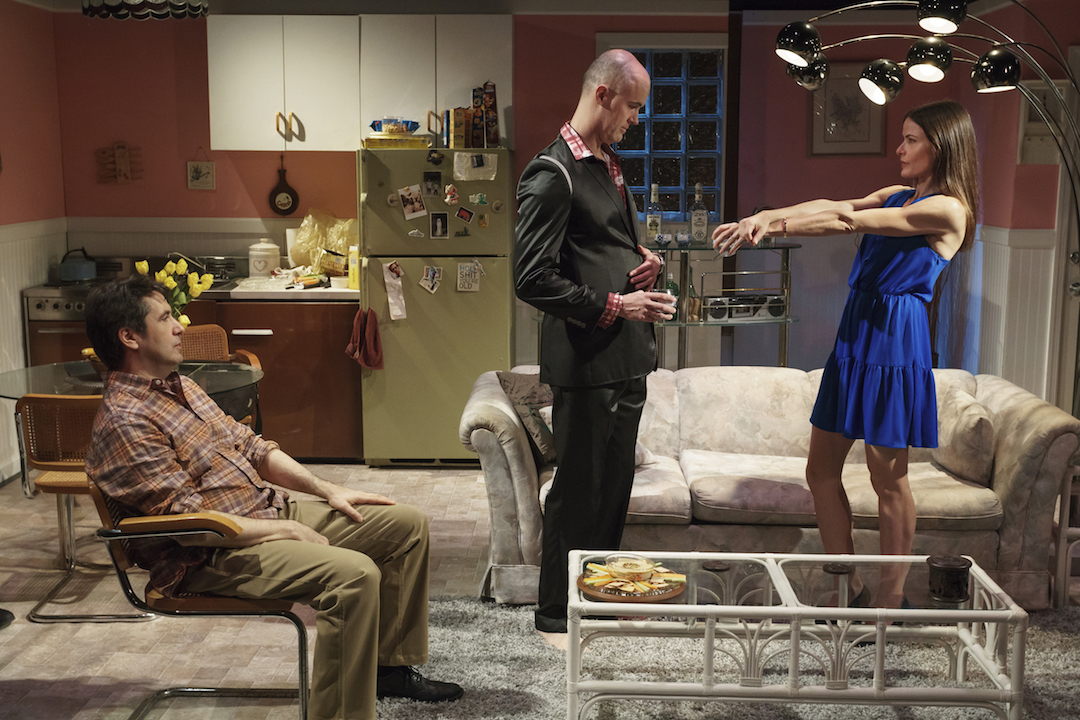By Sandi Durell
After eight months of in depth research, Lillian Hellman’s play about factory workers vs. owners was conceived in a fictional setting of Callum, Ohio, not too far from Wooster where the Wooster Brush Company was located, founded in 1851, and upon which this story is based. It pits the striking workers and corrupt union leaders and strike breakers, alongside the intricate relationships of a wealthy family. The amazing fact is that when Days to Come finally made its debut on Broadway in 1936, it closed a week later.
Interestingly enough, mainstream critics, at the time, disapproved severely because Hellman had too many ideas, too much plot, thought it elusive, as it didn’t connect the labor situation with what was happening within the family melodrama. The play is filled with social and political significance that might have had more impact and make more of a statement in the current climate. However, it spends too much time on the intricacies of the family and too little time on the plight of the working class.
There is surely a lot of family drama to talk about in the wealthy Andrew Rodman’s (Larry Bull) household . . . an unmarried sister, Cora (Mary Bacon) who today might be diagnosed as borderline autistic, spends her time raging at her sister-in-law and demanding her breakfast, as well as scene-stealing; a younger restless wife Julie (Janie Brookshire) who would be more comfortable as a woman today, a free thinking, speaking and wandering gal; the servants, Hannah (a fine Kim Martin-Cotton) and Lucy (Betsy Hogg) who side with the striking factory workers providing some of the more humorous moments.
Andrew Rodman’s attorney Henry Ellicott (Ted Deasy) had or probably would like to have an affair with Julie, but he’s got other things on his mind orchestrating Andrew by bringing in corrupt henchman to “guard” the family from the striking workers who might become violent. Enter Sam Wilkie (Dan Daily) a tough guy with political aspirations who brings along two typical gangsters, Mossie Dowel (Geoffrey Allen Murphy) and Joe Easter (Evan Zes) who proceed to take over the house in a most annoying fashion and are good for an occasional laugh.
Andrew’s childhood best friend is Thomas Firth (Chris Henry Coffey), who works at the factory and represents the striking men. He’s a kindly, caring working class man who brings down the rising temperature in the Rodman house each time he appears and appeals to Andrew to settle the strike; pay the 60 cent per hour wage and let them all go back to work. Why they’d even settle for less just to get their jobs back. But the brush business isn’t what it used to be and Andrew staunchly refuses to give in. Coffey would do well in turning up his volume so he can be better heard by the audience. Meanwhile, the labor organizer Leo Whalen (Roderick Hill) has caught Julie’s eye, which is another sub plot.
More importantly is the fact that Andrew’s passivity throughout . . . his do nothing approach . . . loses him the town he’s known all his life along with the respect of his family and longtime best friend Tom. Tragedy is the outcome on multi-levels.
As Harold Clurman wrote for The Nation of a revival of Days to Come in 1978, at the WPA Theatre – – Hellman’s real preoccupation is “the lack of genuine values of mind or spirit” of the Rodmans and this becomes quite evident.
J.R. Sullivan does a brilliant job directing, but even he can’t undo the long-winded repetitive conversations, and many times slow moving rhetoric over the two and a half hours, of a very poorly written play with some good and not so good performances. A valiant effort by the always competent Mint Theater.
Fine meticulous set design is by Harry Feiner, Costumes by Andrea Varga, Lighting by Christian DeAngelis and Sound by Jane Shaw.
Photos by Todd Cerveris
Days to Come – Mint Theater at the Beckett Theatre, 420 West 42 Street, NYC thru October 6.


























